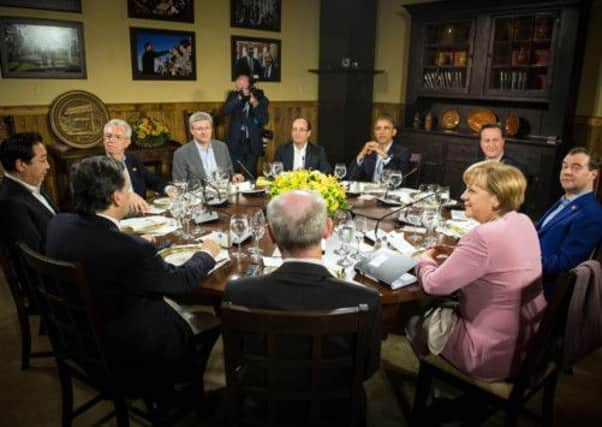Another view from the summit to combat trade inequality


NEXT month, as the most powerful people on the planet fly into London for the 2013 G8 summit, another summit will be taking place in Leeds.
To be fair, even the organisers of the event – suitably titled Not the G8 – admit it’s probably more of a rally. But as they descend on Leeds University they will still come in substantial numbers and they’ll certainly take part with equal purpose.
Advertisement
Hide AdAdvertisement
Hide AdTheir aim is simple: to add pressure on the world’s leaders to focus less on economic considerations and concentrate more on their moral obligations.
Under normal circumstances the summit, organised by pressure group, the World Development Movement at Leeds University, could be dismissed as the inevitable counter-arguments of left wing activists who despise all things capitalist.
But with much of the world languishing in an economic mire, their demands for a fairer global society have a greater resonance this year.
“We have to have much more of a social conscience,” says WDM organiser James O’Nions. “We need other values other than the bottom line.
Advertisement
Hide AdAdvertisement
Hide Ad“After all we have some of the wealthiest and most powerful companies in the world who pay little or no tax and contributions, not just in developed countries but in some of the poorest countries in the world.
“But what about tax justice? The leaders of the G8 could put far more pressure on these organisations to pay their fair share and clamp down on the tax havens that allow it to happen.”
It is a good point, well made by the summit’s organisers. Although their views feel more than a little left-wing, the injustice of corporate tax loopholes will strike a chord with a larger section of British society.
The summit will also call for consideration of other methods of taxation to level the economic playing field, such as applying tax to financial transactions made on stock markets and even the Robin Hood tax movement.
Advertisement
Hide AdAdvertisement
Hide AdAll of which, the WDM argue, is fuelled not just by the practical outcome of an untamed capitalist society, but by important principles.
O’Nions says: “The trouble with the G8 nations is that they tend to treat the economy as a space where we don’t need to apply morality.
“We should leave it to its own devices and, hey presto! it delivers economic growth. Well, that hasn’t happened.”
Another key topic is ‘food sovereignty’, the notion of who owns and controls the world food and drink markets. It’s another area which, as food prices continue to rise, has meaning in both developed and developing countries.
Advertisement
Hide AdAdvertisement
Hide Ad“The trouble is we talk about a ‘free market’ but who has the freedom in the market?” says O’Nions. “Is it really consumers? It certainly isn’t the producers. All too often it’s the big corporations who go to extraordinary lengths to maintain control of the markets for no other reason than profit.”
He uses the example of Monsanto, an US seed and pesticide manufacturer which caused controversy by creating genetically modified seeds and, as a result of being able to identify these seeds by their genetic code, made them their intellectual property.
They then made efforts to prevent farmers from reusing seed produced from crops to plant new crops in a bid to force them to buy more of their seeds. It caused outrage in countries like Argentina, with the sense that these methods were subverting the normal, centuries-old cycle of agriculture.
The many examples of this fight for ownership of food on the global markets has received some serious scrutiny from the likes of writer Raj Patel whose book, Stuffed and Starved: the Hidden Battle for the World Food System has shone a light on the issues.
Advertisement
Hide AdAdvertisement
Hide AdPatel is the most heavyweight figure on a billing of speakers attending next month’s event.
“They understand what we are campaigning for and what we hope to achieve,” says O’Nions. “It’s not just about us merely opposing the G8 in principle or in practice, it’s also about us pressing to implement viable alternatives to the way our global economy is set up.
“And it’s great to have such recognised figures lending their support to the event, but I suspect it’s also good for them to see the issues they’ve highlighted actually being actioned upon and a groundswell of support emerging through events like the Not the G8 summit.”
The G8 summit takes place on June 17 and 18. Not the G8 takes place on Saturday, June 15, to find out more visit: www.wdm.org.uk/not-the-g8